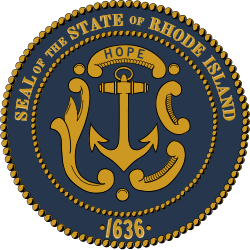| |||||||||||||||||
| |||||||||||||||||
 County results Burnside: 60–70% 70–80% 80–90% | |||||||||||||||||
| |||||||||||||||||
| Elections in Rhode Island |
|---|
 |
The 1866 Rhode Island gubernatorial election was held on April 4, 1866, in order to elect the governor of Rhode Island. Republican nominee and former Union Army Major General Ambrose Burnside defeated Democratic nominee Lyman Pierce. [1]

